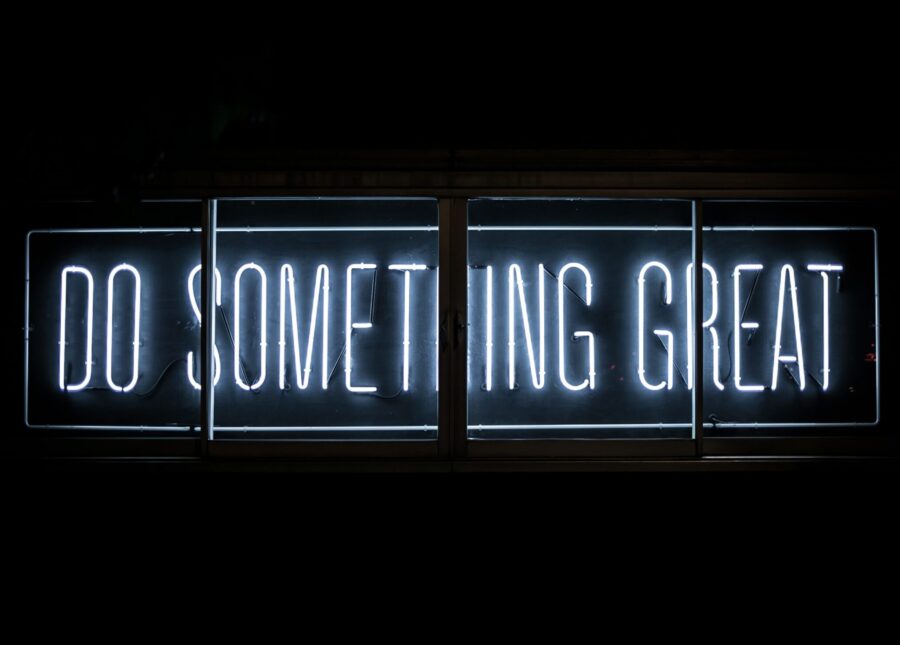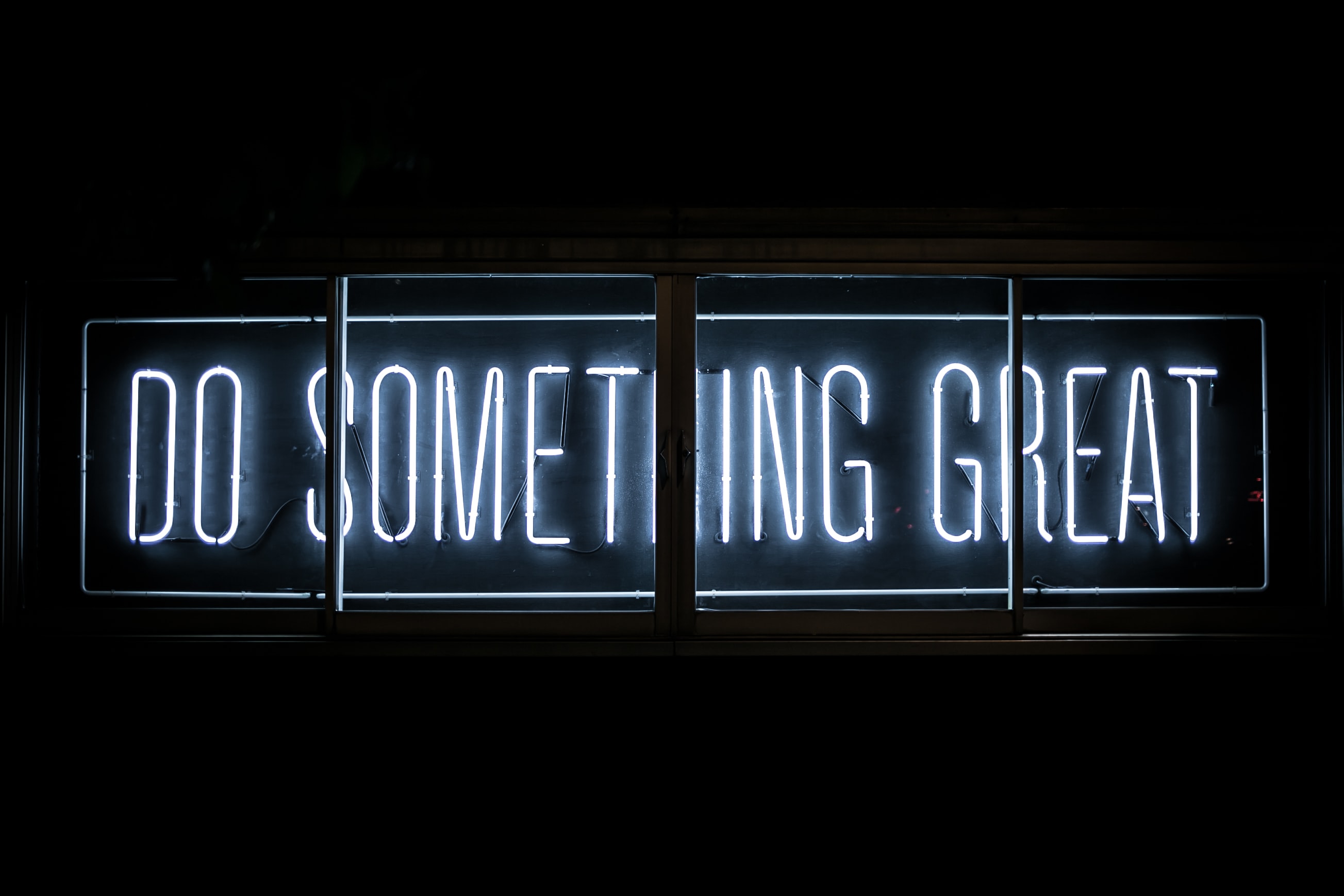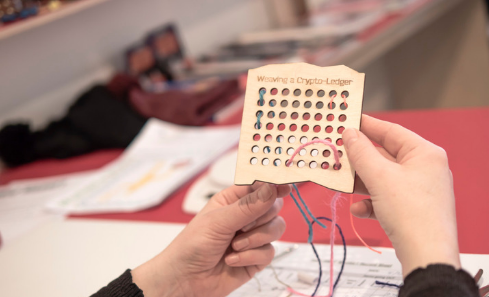7 times the crypto community inspired us

Who do you picture when you think of the crypto community? Is it the ‘Bitcoin bro’, bragging about their Lambos on niche forums? You’re probably not alone. But scratch the surface and it soon becomes clear that this characterisation is no longer valid. The crypto community is growing fast and today it’s made up of a diverse cross-section of society, featuring everyone from your teenage sister to your lumberjack neighbour.

These people come to crypto for many reasons, but chief among these is a sincerely held belief in their power to do good. Bitcoin was designed as a way to solve inequalities in the financial system – to bank the unbanked, to level the playing field. It was born as money with a philosophy. And this is frequently evidenced by the actions of the community. We’ve taken a look back over the last decade to times the crypto community has come together and inspired us. Have one of your own to share? Tweet us.
Giving with Gitcoin
Throughout the COVID-19 pandemic, the crypto community has assisted a range of nonprofits and organisations.
Ahead of New York Blockchain Week, which took place virtually this year, CoinDesk’s Consensus, Ethereum’s Ethereal Summit, a Consensys event, Gitcoin, and nonprofit crypto donation platform The Giving Block joined forces to carry out a series of crypto-fundraising activities.
According to Forbes, “The fundraiser [used] a method derived from a paper based on Microsoft Principal Researcher Glen Weyl’s ‘liberal radicalism’ ideas and co-written by Ethereum founder Vitalik Buterin and Harvard researcher Zoë Hitzig, whereby the mathematical formula results in the largest matching grants going to causes that attract the broadest spread of contributions across the largest number of participants.”
The public was able to make public goods contributions to projects of value to them. These projects received amounts proportional to the square of the sum of the square roots of the contributions. The method aimed to elevate nonprofits’ impact, alleviate crypto donors’ tax burdens, and accelerate crypto adoption.
In May, Scott Moore, head of partnerships for Gitcoin said: “So far over $2 million has been distributed to public goods using Quadratic Funding on Gitcoin. We’re excited to continue experimenting with these innovative mechanisms in new ways, especially for charities in the fight against the COVID-19 pandemic.”
Donations were also given directly to critical charities working tirelessly on the frontlines of the global pandemic. Some recipients included Operation Masks, Action Against Hunger, Save the Children, Médecins Sans Frontières and eight others.
The Giving Block also announced the start of the #cryptoCOVID19 alliance; its executive director, Alex Wilson, commented: “in total, there are over 20 industry partners helping support our efforts, each contributing in a unique way.” The newly formed alliance helped generate donations and provided assistance for non-profits.
2. COVID-19-inspired hackathons
Hackathons are an old crypto favourite, with the community regularly coming together to find ways to use crypto for social good. This has been seen throughout the pandemic, with events that inspired innovation for new apps geared towards monitoring the health of individuals and communities, discovering new approaches for simulating the spread of COVID-19 and developing new machine learning tools to help biomedical and epidemiological analysis.
ConsenSys launched its ConsenSys Health tool to leverage ConsenSys’ suite of core products including Codefi, Infura and PegaSys in order to provide tools, infrastructure and applications to both private and public Ethereum solutions for industry use cases.
Additionally, Consensys Health ran a Stop COVID-19 Hackathon. Dr Alex Cahana headed up the programme and praised blockchain’s tracking potential. “The distributed and decentralized nature of Blockchain can accelerate multi-lateral collaboration by improving system response (computational trust), dampen economic costs (trace) and increase social trust (transparency).”

According to its website, the hackathon hoped to converge healthcare and life sciences experts with next-generation technologists, design solutions that prioritise public health without sacrificing privacy and security, and to accelerate researchers’, scientists’ and healthcare professionals’ understanding to stop COVID-19.
The $10,000 first prize was awarded by KPMG LLP to the dPlasma team, who built a matching mechanism for donors and recipients of blood plasma, empowering haematologists but keeping all personal health information private and secure.
3. Using crypto to support LGBTQ+ rights
Emerging tech sectors are not necessarily known for their inclusivity but projects like LGBT Token, TransTech Social Enterprises and StartOut indicates the crypto community is looking to turn a page.
The global financial industry along with many of the world’s tech hubs are not historically inclusive, but according to industry leaders, it appears the crypto community is a welcoming place for LGBTQ+ people. Projects like LGBT Token, TransTech Social Enterprises and StartOut, aim to empower LGBTQ+ communities, constantly pursuing equal rights in the tech community.
According to a WNYC Studios survey, LGBTQ+ people have a worse financial outlook than cisgender and heterosexual individuals. According to Cointelegraph, “More than half feel anxious about their finances, with up to 42% reporting that their financial prospects have caused them to feel depressed. A further 25% of LGBTQ+ respondents say that their sexual orientation has caused them to suffer financially”.
Claire Lovell, associate director of product management at Gemini, believes cryptocurrency’s philosophy is an important factor in improving this situation. “I do think the crypto sector is supportive of LGBTQ+ rights,” she explained. “The crypto ethos is to remove those existing power structures that would seek to limit the rights or privileges of people. Personally speaking, of the five years I’ve been working in this space, I have not once experienced any homophobia from other members of the community.”
Joe DiPasquale, CEO of BitBull Capital and co-founder of StartOut, – a nonprofit that empowers LGBTQ+ entrepreneurs in tech – believes the technology’s impact on the way people govern themselves has a potential to impact social issues. “The crypto sector is more than supportive of LGBTQ+ rights — crypto is pioneering new forms of governance that can bring about advances in society more quickly.” He continued, “From projects like Tezos which has developed more efficient ways to vote on-chain through delegates, to thought leaders who believe the blockchain and virtual nations can empower people and correct exploitation, many projects in the sector mirror the support that we see more generally from most forward-thinking technologists. While crypto is apolitical, Bitcoin itself bypasses the need for government control over money and central banks.”
4. Crypto-knitting circles: feminist thinking and community economies
Crypto-Knitting Circles is a collaboration between artist Allie Rutherford and designer Bettina Nissen, along with Swap market in Govanhill and Platform in Easterhouse. It was formed to develop the idea of a feminist cryptocurrency. The year-long research project kicked off in 2019 and was funded by the University of Edinburgh and the National Lottery.

(Above: “Weaving a crypto ledger”, Creative Scotland)
Rutherford explains: “We are looking at how we can combine feminist thinking and community economies with blockchain technologies and asking whether new digital technologies offer the potential to create fairer grass-roots exchange networks.”
The project started out with workshops, using the format of a “knitting circle” through which project members had the opportunity to share ideas, playing on the similarities between knitting patterns and the encryption codes or trust networks of blockchain technology.
The team also hosted a knowledge exchange event called Chain Re : Action, through which residents, artists, academics, and activists came together to discuss the use of new technologies, like crypto, in creating a different type of economy. Rutherford added, “If a cashless society is inevitable how do we create one that works for us? And how can we ensure that the gender, race and class biases of today are not coded into the digital economy of the future.”
The team envisioned co-developing a proposal for a blockchain system that puts feminist principles into practice, developed by and for the people who want to use it.
5. High school blockchain engineer: Amanya Chadha
Operating in a decentralised world means no matter who you are or where you are, if you’ve got something meaningful to contribute, nothing’s stopping you.
In 2018 Cryptochicks Hackathon winner, Ananya Chadha, spent her summer break as a 16-year-old interning with Ethereum giant, ConsenSys, in Toronto, working on a gene-editing project at SickKids Hospital, and took a course on self-driving cars.
Chadha described how she got into the blockchain and cryptocurrency world as part of an after-school programme called the Knowledge Society. After spending time researching the technologies and the problems they have the potential to solve, and taking a few online courses, she took part in the Cryptochicks Hackathon. She formed her own team of one and built her genomics data on the blockchain platform. She ended up winning the hackathon and described what came next as a “domino effect”.
Chadha’s inspiration for her hackathon project stems from the major technological shifts taking place in the healthcare sector. She explained: “Healthcare is transitioning to using artificial intelligence and machine learning to find mutations in our diseases and then how can we fix them. The thing that’s most interesting to me is that you need a large amount of data and the data currently has two really big problems. Security’s the first one, and accessibility and reliableness of the data is the second.”
Her goal was to find a way to retain individuals’ anonymity when providing healthcare-related data, without compromising its integrity. She recognised financial compensation as a massive incentive to those providing data, meaning traditional anonymity-preserving methods wouldn’t work. “So that’s why I built my genome project on the blockchain. The thing about blockchain is there’s been so much infrastructure around payment of cryptocurrency. I built a smart contract which pretty much said, ‘You upload your information. If it is used, the person who used it will pay you $200’.”
Chadha has set her sights on other more viable projects for the time being, citing difficulties convincing established companies to adopt a new technology like hers. She ended off, “Maybe I’ll do it later; I’m not entirely sure right now. But the idea makes sense and I definitely want it to exist eventually.” Regardless, we’re sure she’s destined for great things.
6. Bitcoin donations for Aussie wildfires
Remember the wildfires that devastated parts of Australia earlier this year? The crypto community rallied together and created a Bitcoin address to gather contributions for relief efforts.
Let’s show the world the power of #bitcoin. All donations are going to the Rural Fire Service. ????? #AustraliaBurning #AustraliaOnFire #NSWfires
BTC address: 38gi89vKr7VPCcwdoY2coTha86rfDHeyAR pic.twitter.com/9xjAuROzMb— Alex Saunders ???? (@AlexSaundersAU) January 4, 2020
In total, the address received 1.71 BTC (~$16 144,57) in donations. Bitcoinist described Bitcoin donations as “so far the most valuable and liquid ones. The decision to simply open a donation address also saves the hassle of going through an intermediary.”
7. Saving the rainforests with crypto
Alex Wilson of The Giving Block believes crypto donations bode well with millennials, a group charities have struggled to resonate with. Charities “want to start building these lifelong relationships with the younger donors who are in their twenties and thirties,” said Wilson. “When they hear stats like ’20% of millennials own cryptocurrency’, that’s really exciting for them because they really struggle to connect with younger donors.”
Suzanne Pelletier, executive director of the Rainforest Foundation US, echoes his belief: “I’m really convinced that the market will just get bigger and bigger and, by default, the size of philanthropy in that group will increase.”
In 2015, The Rainforest Foundation created its very own token, BitSeeds, which ran for a while on Bittrex before being delisted.
Raphaël Mazet, CEO of Alice, a blockchain company geared around social impact, believes crypto has a bright future in the charity sector, raising an important hurdle nonprofits encounter, or in other words, a problem crypto can solve. “Public trust in nonprofits has been declining for years, and it’s starting to affect donation levels, especially amongst smaller donors. Crypto provides a transparent payment trail showing how the money was used.”
Wholesome crypto community tweets
Crypto Twitter is a weird and wonderful place and turns out it’s pretty wholesome, too. We compiled a bunch of tweets sure to inspire you to say something positive about your crypto community.
We’re all in this together ?
Watching the open source and collaborative way the Crypto Community is learning about the financial markets together in real time is inspiring for the future of finance.
— David Aron Levine (@davealevine) June 27, 2019
Crypto and blockchain technologies are sure to have an impact on creating a more balanced and inclusive world for all ?
Few people outside #crypto realize what an inspiring, visionary space the global #blockchain community really is! Great presentation by @mi_ayako on the Ethereum Foundation’s vision for #socialgood at @EthereumDenver. #TechForGood pic.twitter.com/vAOVy0Bowj
— Marco Baumann (@MarcoABaumann) February 16, 2019
If that’s not enough to inspire you to join the crypto Twitter community, we don’t know what is ?
Hello, I just wanted to say, have you noticed how awesome a community Crypto Twitter is?! Intelligence abound, big visionaries, on the edge entrepreneurs, people with amazing awareness and insight, highly talented and truly inspiring people
Feeling so grateful toward you all ?
— Petek ? (@RadarRayne) October 28, 2019
The crypto community is filled with people worth being around. Sharp minds, inspiring stories, and great senses of humor everywhere you look.
Can’t think of any other group of people I’d rather be spending my time with.
— Marshall Hayner (@MarshallHayner) February 20, 2020
If anyone’s empowering women in the crypto community, we’re in ?
@RoyaMahboob is credited for inspiring the crypto and blockchain community to work to empower women in developing countries with #Bitcoin .https://t.co/uKibQ50mV9#blockchaincommunity #womenempowerment pic.twitter.com/Gt10ktiKqN
— CryptoNewsZ (@cryptonewszcom) March 8, 2020
Hell yeah, we love a good use case story ?
Launching in our 3rd village. Now families in #ElEspino #ElSalvador using #Bitcoin and the local supermarket accepting it. Our dream of creating the #cryptocoast on the Pacific is one step closer. Bitcoin was made for this. pic.twitter.com/l0T2zeBHgd
— Bitcoin Beach (@Bitcoinbeach) May 28, 2020
Keep reading…
Crypto in 2020: The year so far
 Discover
Discover Help Centre
Help Centre Status
Status Company
Company Careers
Careers Press
Press
